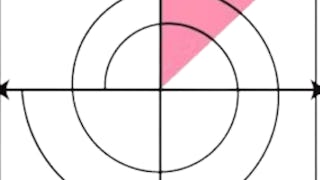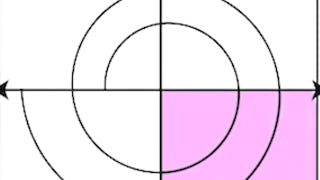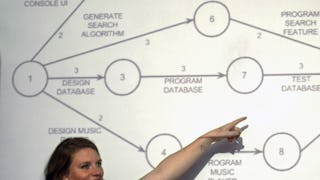Willkommen bei "Schreiben von Anforderungen". Wie der Titel schon sagt, werden wir uns in den nächsten vier Wochen mit der wichtigen Aufgabe des Schreibens von textbasierten Anforderungserklärungen beschäftigen. Der Kurs führt Sie Schritt für Schritt durch die Regeln für das Schreiben von Anforderungserklärungen gemäß dem vom International Council on Systems Engineering (INCOSE) veröffentlichten "Guide for Writing Requirements".



(342 Bewertungen)
(342 Bewertungen)
Kompetenzen, die Sie erwerben
- Kategorie: Analyse der Anforderungen
- Kategorie: Grammatik
- Kategorie: Systemanforderungen
- Kategorie: Produktanforderungen
- Kategorie: Geschäftliche Anforderungen
- Kategorie: Style Guides
- Kategorie: Schreiben
- Kategorie: Lektorat
- Kategorie: Technisches Schreiben
- Kategorie: Prägnanz
- Kategorie: Funktionale Anforderung
- Kategorie: Verifizierung und Validierung
- Kategorie: Anforderungsmanagement
- Kategorie: Bearbeitung von
- Kategorie: Dokumente zu den Benutzeranforderungen
- Kategorie: Systemtechnik
Wichtige Details

Zu Ihrem LinkedIn-Profil hinzufügen
5 Aufgaben
Erfahren Sie, wie Mitarbeiter führender Unternehmen gefragte Kompetenzen erwerben.


Erwerben Sie ein Karrierezertifikat.
Fügen Sie diese Qualifikation zur Ihrem LinkedIn-Profil oder Ihrem Lebenslauf hinzu.
Teilen Sie es in den sozialen Medien und in Ihrer Leistungsbeurteilung.

In diesem Kurs gibt es 5 Module
Willkommen zum MOOC Requirements Writing. Der Kurs läuft über fünf Wochen. In den ersten vier Wochen werden Sie vier Module (eines pro Woche) absolvieren, die sich schrittweise durch die Regeln für das Schreiben von Anforderungen bewegen. Jede Woche haben Sie die Möglichkeit, ein Modul-Quiz zu absolvieren, so oft Sie wollen, um sicherzustellen, dass Sie den Stoff des Moduls beherrschen. Die Quizfragen stammen aus einem umfangreichen Fragenkatalog, so dass Sie jedes Mal, wenn Sie das Quiz absolvieren, neue Fragen sehen werden, um Ihr Wissen zu testen. In Woche 5 wird es keine Präsentationen geben, aber Sie werden Zeit haben, die vier Module durchzugehen und die Modulquizze noch einmal zu üben, damit Sie auf die Kursprüfung vorbereitet sind.
Das ist alles enthalten
2 Videos4 Lektüren1 Aufgabe
Wie wir im letzten Modul gesehen haben, geht es beim Schreiben von guten Anforderungen im Wesentlichen darum, die Mehrdeutigkeit aus der resultierenden Aussage zu entfernen. Wir haben zunächst eine geeignete Struktur für die Aussage ermittelt und uns dann mit den Regeln befasst, die wir beim Schreiben von Anforderungen beachten sollten. In diesem Modul gehen wir die Regeln weiter durch, insbesondere was die Verwendung von vagen und überflüssigen Wörtern betrifft.
Das ist alles enthalten
1 Video1 Aufgabe
Im letzten Modul haben wir uns mit den Regeln beschäftigt, die wir befolgen müssen, um gute Anforderungsformulierungen zu entwickeln. Insbesondere haben wir uns die Regeln angesehen, die sich auf die Verwendung von vagen und überflüssigen Wörtern beziehen. In diesem Modul gehen wir auf weitere dieser Regeln ein und beginnen mit einigen weiteren Regeln für andere Wörter, die wir beim Schreiben von Anforderungen vermeiden sollten. Insbesondere geht es um die Vermeidung von Konjunktionen, es sei denn, wir führen eine formale Konvention für logische Bedingungen ein. Wir erörtern auch, warum wir unbeschränkte Aussagen und Escape-Klauseln vermeiden müssen.
Das ist alles enthalten
1 Video1 Aufgabe
In Modul 4 schließen wir unseren Blick auf die Regeln für das Schreiben von Anforderungen ab. Wir befassen uns insbesondere damit, wann wir präzise sein sollten und wann nicht, wie wir Einheiten, Bereiche und Toleranzen verwenden und welche Dinge wir vermeiden sollten (z. B. Querverweise, Pronomen und die Verwendung von "nicht" bei der Formulierung negativer Anforderungen).
Das ist alles enthalten
1 Video1 Aufgabe
Dieses letzte Modul gibt Ihnen etwas Zeit, die ersten vier Module und die Quizfragen zu wiederholen, um sich auf die Prüfung vorzubereiten, die Sie am Ende des Kurses ablegen werden. Die Prüfungsfragen stammen aus demselben großen Pool von Fragen wie die Quizfragen - Sie sollten also nicht von den Prüfungsfragen überrascht sein, denn wenn Sie sich ausreichend auf die Quizfragen vorbereitet haben, werden Sie etwas sehr Ähnliches gesehen haben. Wir bieten auch einige zusätzliche Informationen zum Master of Systems Engineering Programm an der UNSW Canberra.
Das ist alles enthalten
2 Videos1 Aufgabe
Dozenten


Mehr von Elektroingenieurwesen entdecken


University of Colorado System


University of Colorado System


University of Alberta
Warum entscheiden sich Menschen für Coursera für ihre Karriere?




Bewertungen von Lernenden
342 Bewertungen
- 5 stars
69,88 %
- 4 stars
23,09 %
- 3 stars
5,26 %
- 2 stars
0,87 %
- 1 star
0,87 %
Zeigt 3 von 342 an
Geprüft am 20. Feb. 2018
Very short and to the point! But I think other aspects of requirements writing could have been covered through course.
Geprüft am 23. Juni 2020
Make sure you take notes, a lot of this material is so handy to refer to and explained a lot easier than in the INCOSE Guide
Geprüft am 14. Juli 2020
Thank you. This course will become a guidelines for me to avoid ambiguous requirements for future projects.

Neue Karrieremöglichkeiten mit Coursera Plus
Unbegrenzter Zugang zu 10,000+ Weltklasse-Kursen, praktischen Projekten und berufsqualifizierenden Zertifikatsprogrammen - alles in Ihrem Abonnement enthalten
Bringen Sie Ihre Karriere mit einem Online-Abschluss voran.
Erwerben Sie einen Abschluss von erstklassigen Universitäten – 100 % online
Schließen Sie sich mehr als 3.400 Unternehmen in aller Welt an, die sich für Coursera for Business entschieden haben.
Schulen Sie Ihre Mitarbeiter*innen, um sich in der digitalen Wirtschaft zu behaupten.
Häufig gestellte Fragen
Der Zugang zu Vorlesungen und Aufgaben hängt von der Art Ihrer Einschreibung ab. Wenn Sie einen Kurs im Prüfungsmodus belegen, können Sie die meisten Kursmaterialien kostenlos einsehen. Um auf benotete Aufgaben zuzugreifen und ein Zertifikat zu erwerben, müssen Sie die Zertifikatserfahrung während oder nach Ihrer Prüfung erwerben. Wenn Sie die Prüfungsoption nicht sehen:
Der Kurs bietet möglicherweise keine Prüfungsoption. Sie können stattdessen eine kostenlose Testversion ausprobieren oder finanzielle Unterstützung beantragen.
Der Kurs bietet möglicherweise stattdessen die Option 'Vollständiger Kurs, kein Zertifikat'. Mit dieser Option können Sie alle Kursmaterialien einsehen, die erforderlichen Bewertungen abgeben und eine Abschlussnote erhalten. Dies bedeutet auch, dass Sie kein Zertifikat erwerben können.
Wenn Sie ein Zertifikat erwerben, erhalten Sie Zugang zu allen Kursmaterialien, einschließlich der benoteten Aufgaben. Nach Abschluss des Kurses wird Ihr elektronisches Zertifikat zu Ihrer Erfolgsseite hinzugefügt - von dort aus können Sie Ihr Zertifikat ausdrucken oder zu Ihrem LinkedIn-Profil hinzufügen. Wenn Sie die Kursinhalte nur lesen und ansehen möchten, können Sie den Kurs kostenlos besuchen.
Sie haben Anspruch auf eine vollständige Rückerstattung bis zwei Wochen nach Ihrem Zahlungsdatum oder (bei Kursen, die gerade erst begonnen haben) bis zwei Wochen nach Beginn der ersten Sitzung des Kurses, je nachdem, welcher Zeitpunkt später liegt. Sie können keine Rückerstattung erhalten, sobald Sie ein Kurszertifikat erworben haben, auch wenn Sie den Kurs innerhalb der zweiwöchigen Rückerstattungsfrist abschließen. Siehe unsere vollständigen Rückerstattungsbedingungen.
Weitere Fragen
Finanzielle Unterstützung verfügbar,
 enthalten
enthalten


